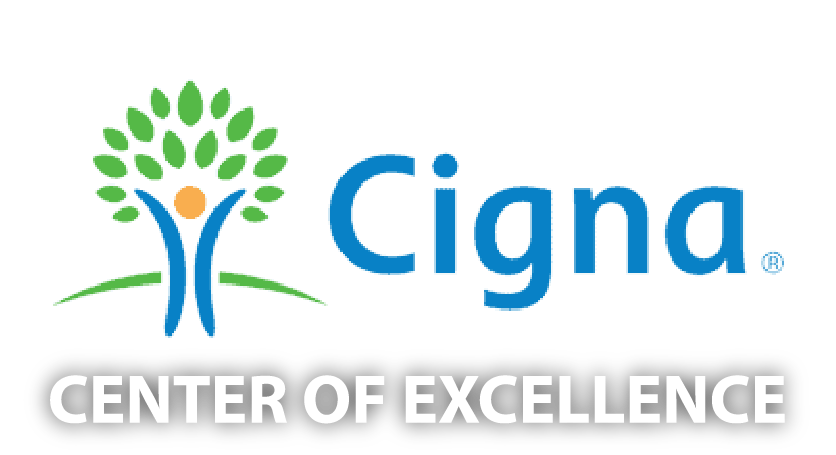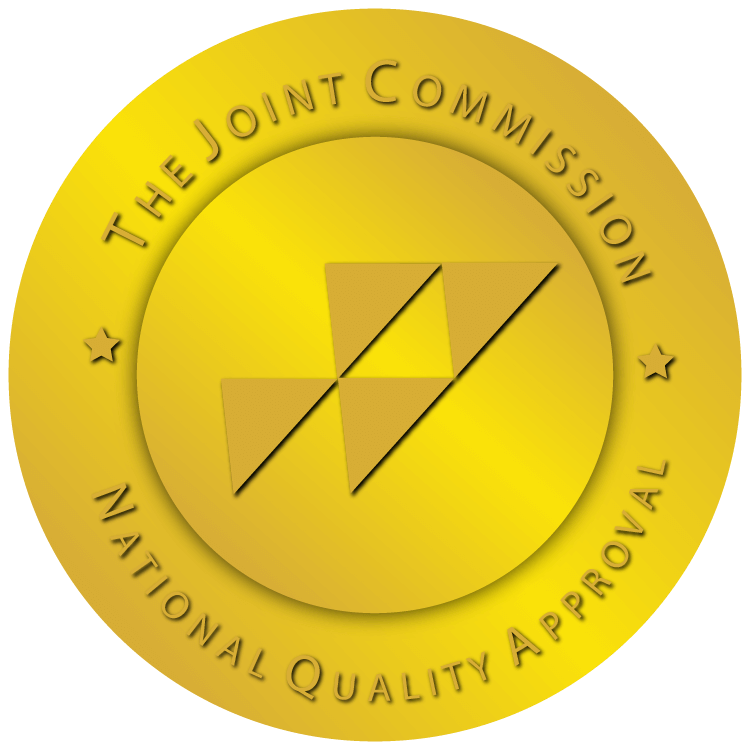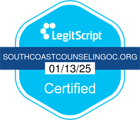ADHD depression medication can help you manage symptoms, but recovery can be challenging, especially if you’re neurodivergent or have a substance use disorder (SUD). Many people with ADHD and depression face addiction, so it’s important to find safe and effective care.
Learning how medication, therapy, and support systems work together can help you take control of your health and build a strong recovery plan.

The Connection Between ADHD, Depression, and Mental Health Challenges
Studies published in the Psychiatry (Edgmont) journal show that 9% to 38% of children with Attention Deficit Hyperactivity Disorder (ADHD) also have depression. That means if you have ADHD, you are at a higher risk of developing depression compared to someone without it.
There are a few reasons why:
- Constant Struggles – ADHD can make school, work, and relationships harder, leading to frustration and low self-esteem. Over time, this can cause feelings of sadness or hopelessness, which are signs of depression.
- Brain Chemistry – Both ADHD and depression affect the brain’s ability to regulate mood, motivation, and focus. If the brain has trouble managing these functions, symptoms of both conditions can appear.
- Family History – Genetics play a role in both ADHD and depression. If someone in your family has one or both conditions, you might be more likely to have them, too.
Children and adults with both ADHD and depression often struggle more than those with just one condition. Based on the same study from Psychiatry (Edgmont), only 1 in 5 children with depression has it as their only condition, while the other 4 also have at least one additional mental health disorder. More than half of children with depression have two or more mental health conditions.
A mental health professional can create a treatment plan that balances both conditions.
Medication Options for Managing ADHD & Co-Occurring Depression
Dealing with ADHD and depression can be tough, but knowing your medication options can help. This guide will make it easier to understand your choices.
How ADHD Medications Help Manage Symptoms
ADHD medications primarily fall into two categories: stimulants and non-stimulants.
- Stimulants: These are the most commonly prescribed for ADHD and include medications like methylphenidate (e.g., Ritalin) and amphetamines (e.g., Adderall). They work by increasing certain brain chemicals that help improve focus and reduce impulsivity.
- Non-Stimulants: For those who may not respond well to stimulants or prefer an alternative, non-stimulant options like atomoxetine (Strattera) are available. Atomoxetine works by increasing norepinephrine levels in the brain, aiding concentration and impulse control.
Depression Medications
Depression is often treated with antidepressants, which can also benefit individuals with ADHD. Common classes include:
- Selective Serotonin Reuptake Inhibitors (SSRIs): These medications, such as fluoxetine (Prozac) and escitalopram (Lexapro), increase serotonin levels in the brain, which can improve mood.
- Serotonin-Norepinephrine Reuptake Inhibitors (SNRIs): Drugs like desvenlafaxine (Pristiq) and duloxetine (Cymbalta) increase both serotonin and norepinephrine levels, helping with mood regulation.
Combining ADHD & Depression Medications
If you’re dealing with both ADHD and depression, your healthcare provider might consider a combination of treatments:
- Stimulant with Antidepressant: Sometimes, a stimulant for ADHD is paired with an antidepressant to address both conditions. For instance, taking methylphenidate with Selective Serotonin Reuptake Inhibitors (SSRI) like fluoxetine has been tried, but it’s important to watch for side effects.1
- Antidepressants with ADHD Benefits: Certain antidepressants, such as bupropion (Wellbutrin), can help alleviate depression and have shown effectiveness in improving ADHD symptoms. Bupropion works by increasing norepinephrine and dopamine levels, aiding concentration.
Understanding your medication options empowers you to make informed decisions in partnership with your healthcare provider, paving the way toward effective management of ADHD and depression.
How ADHD and Depression Contribute to Substance Use Disorders (SUD)
Studies have shown that individuals with ADHD or depression are at a higher risk for developing SUDs. A meta-analysis published in the Journal of the American Academy of Child & Adolescent Psychiatry found that childhood ADHD increases the risk of developing substance-related disorders later in life.2
That said, having ADHD and depression can raise your risk of substance use.
- Impulsivity and Risk-Taking: ADHD often involves impulsive behavior and difficulty considering consequences. This can lead to experimenting with drugs or alcohol without fully understanding the risks.
- Self-Medication: Both ADHD and depression can cause distressing symptoms. You might turn to substances like alcohol or drugs to temporarily ease feelings of restlessness, sadness, or anxiety.
- Social Challenges: These conditions can make social interactions harder, leading to feelings of isolation. Using substances might seem like a way to fit in or cope with loneliness.
- Emotional Regulation Difficulties: Managing emotions can be more challenging with ADHD and depression. Substances might be used in an attempt to stabilize mood swings or emotional discomfort.
By recognizing these risks, you can take proactive steps toward healthier coping mechanisms and seek appropriate support.

Overlapping Symptoms and Traits in ADHD, Depression, and Substance Misuse
ADHD, depression, and SUD often occur together and share common traits that can complicate daily life.3
Here’s what you should know:
1. Impulsivity and Risk-Taking
If you have ADHD, you might find yourself acting without thinking, leading to impulsive decisions. This behavior can increase the likelihood of experimenting with substances, potentially leading to misuse. Studies have shown that individuals with ADHD are more prone to risk-taking behaviors, which can contribute to the development of SUD.4
2. Emotional Dysregulation in ADHD & Depression
Managing emotions can be particularly challenging when dealing with ADHD and depression. You might experience intense mood swings or feelings of frustration, sadness, or anger. These emotional challenges can sometimes lead to using substances as a way to cope.
3. Difficulty with Social Interactions
Both ADHD and depression can make social situations more challenging. You might struggle with maintaining relationships or feel isolated. In some cases, individuals turn to substances to ease social anxiety or to feel more connected, which can lead to misuse.5
4. High Rates of Psychiatric Comorbidity
It’s common for individuals with ADHD and SUD to have additional psychiatric disorders, such as mood and anxiety disorders. Research indicates that adults with both ADHD and SUD often experience higher rates of major depression, conduct disorder, and antisocial personality disorder compared to those without these conditions.6
5. Challenges in Daily Functioning
Managing daily responsibilities can be more difficult when dealing with these co-occurring conditions. You might find it hard to maintain employment, manage finances, or keep up with household tasks. These challenges can contribute to stress and may lead some individuals to use substances as a form of relief.
Managing ADHD and Depression Medications in Addiction Recovery
With the right approach, you can balance treatment and keep moving forward. Here’s how.
1. Work with the Right Mental Health Doctor
Find a doctor who understands both neurodivergence and addiction recovery. They can help you choose medications that are safe and effective for your needs.
2. Be Honest About Your Mental Health History
Tell your doctor if you have a history of substance use. Some ADHD or depression medications can be addictive, so your doctor needs to know to prescribe the safest options.
3. Stick to Your Prescription & Medication Schedule
Take your medication exactly as prescribed. If you feel like it’s not working or you’re having side effects, talk to your doctor before making any changes.
4. Be Mindful of ADHD & Depression Triggers
Certain medications can affect your mood or cravings. Keep track of how you feel and let your doctor or therapist know if you notice any problems.
5. Use Healthy Coping Strategies
Medication is only part of the solution. Exercise, therapy, support groups, and mindfulness can help you manage your symptoms without relying on substances.
6. Stay Connected to Support
Join a recovery program that understands neurodivergence. Some programs offer medication-assisted treatment (MAT) while supporting your recovery journey.
7. Give Yourself Time
Recovery takes time. If you struggle, don’t be too hard on yourself; reach out for help and keep moving forward.
By working with the right professionals, following your treatment plan, and using healthy coping tools, you can manage both your medication and your recovery successfully.
Essential Support Systems & Recovery Resources for Neurodivergent Individuals
Recovering from ADHD, depression, and SUD is easier with strong support and helpful resources. Knowing your options helps you make the best choices for your needs.
Therapy and Counseling Options
Engaging in therapy is a cornerstone of effective recovery. Individual therapy offers a private space to explore underlying issues contributing to addiction and mental health challenges.
Group therapy fosters a sense of community, allowing you to connect with others facing similar struggles. Family therapy can also be instrumental in helping to repair relationships and build a supportive home environment. Adjusting therapy to fit neurodivergent needs makes it more effective and personal.
Peer Support Groups for SUD & Neurodivergency
Connecting with peers who understand your journey can be incredibly validating and motivating. Support groups specific to ADHD, depression, and SUD provide platforms to share experiences, coping strategies, and encouragement. These groups meet in person or online, giving you flexible options that fit your needs.
Medically Assisted Detox and Recovery Options for ADHD Depression Medication
Beginning recovery often involves detoxifying your body from substances. Attempting this alone can be challenging and, in some cases, dangerous due to withdrawal symptoms.
Medically supervised detox provides a safe environment where healthcare professionals monitor and manage these symptoms, ensuring your safety and comfort. This method helps with withdrawal and prepares you for full treatment.
South Coast Counseling specializes in creating individualized treatment plans that respect and address neurodivergent needs. Our comprehensive approach includes medically assisted detox, therapy, and continuous support tailored to your specific needs.
If you’re seeking a path to recovery that honors your unique experiences, reach out to us today to begin your personalized journey toward healing.

Sources:
- (2024). Jamanetwork.com.
- Groenman, A. P., Janssen, T. W. P., & Oosterlaan, J. (2017). Childhood psychiatric disorders as risk factors for subsequent substance abuse: A meta-analysis. Journal of the American Academy of Child & Adolescent Psychiatry, 56(7), 556–569.
- Regnart, J., Truter, I., & Meyer, A. (2017). Critical exploration of co-occurring ADHD, mood disorder, and substance use disorder. Expert Review of Pharmacoeconomics & Outcomes Research, 17(3), 275–282.
- Dekkers, T. J., Popma, A., Sonuga-Barke, E. J. S., Oldenhof, H., Bexkens, A., Jansen, B. R. J., & Huizenga, H. M. (2020). Risk-taking by adolescents with ADHD: A behavioral and psychophysiological investigation of peer influence. Journal of Abnormal Child Psychology, 48.
- Howard, A. L., Kennedy, T. M., Macdonald, E. P., Mitchell, J. T., Sibley, M. H., Roy, A., Arnold, L. E., Epstein, J. N., Hinshaw, S. P., Hoza, B., Stehli, A., Swanson, J. M., & Molina, B. S. G. (2019). Depression and ADHD-related risk for substance use in adolescence and early adulthood: Concurrent and prospective associations in the MTA. Journal of Abnormal Child Psychology, 47(12), 1903–1916.
- Wilens, T. E., Kwon, A., Tanguay, S., Chase, R., Moore, H., Faraone, S. V., & Biederman, J. (2005). Characteristics of adults with ADHD plus substance use disorder: The role of psychiatric comorbidity.American Journal on Addictions, 14(4), 319–327.












